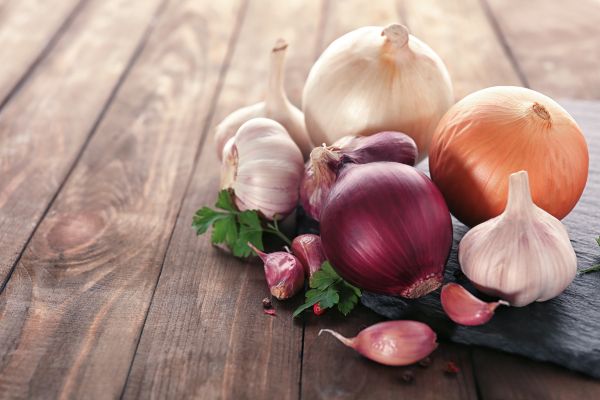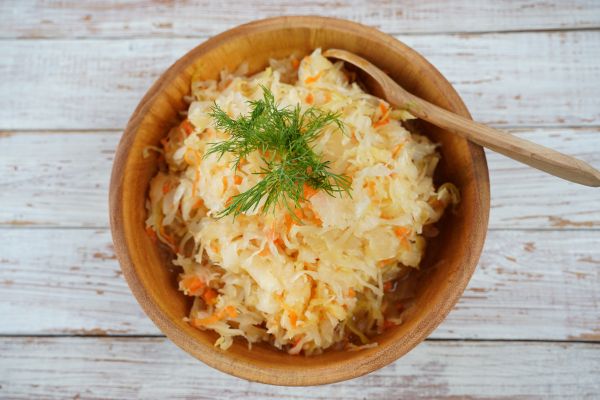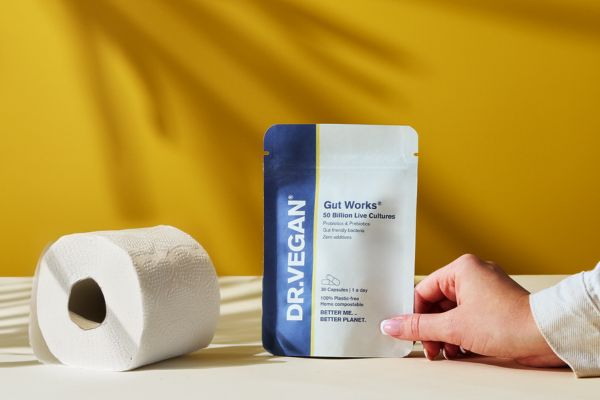9 gut-friendly foods you need to eat in 2025 to boost your longevity

Pre and probiotics are the double-act we all need in our lives. They’re being touted as a huge growth area in the food and supplements market for 2025 and beyond.
You can’t have a conversation about digestive health and nutrition without mentioning these gut-friendly functionals.
But before we give you a heads up on your go-to sources for prebiotics and probiotics, here are a few tasty facts to chew on first…
Dishing up the benefits
“Prebiotics are non-digestible fibres that serve as a nourishment source for beneficial gut bacteria,” say the experts at ethical nutrition and supplement brand, DR.VEGAN®, “while probiotics are live bacteria that offer health benefits when consumed.”
The prebiotics’ specific job is to act as “the fuel” that helps the friendly bacteria (the probiotics) “thrive in the digestive system”.
So together they promote a balanced and healthy gut microbiome, which is crucial for overall wellbeing.
Different types of prebiotics encourage the growth of different types of probiotics, which aid digestion by producing more than 200 digestive enzymes. That’s just what our body needs, as having a healthy gut means more nutrients can be absorbed.
But that’s not all! Probiotics support the immune system and help maintain healthy skin, too. And they also act like burly bodyguards, preventing harmful bacteria such as salmonella and Campylobacter from sticking around and causing rather unpleasant symptoms.
The pitfalls of going without
If you don’t have enough prebiotics or probiotics in your diet, it causes an imbalance of the gut microbiome. This is referred to as ‘dysbiosis‘. The result? Your poor digestive system will suffer.
“It can lead to an imbalance in the gut microbiome, resulting in digestive issues including constipation, diarrhoea, bloating or gas,” explain the DR.VEGAN® gut gurus. “These symptoms may indicate that the beneficial bacteria in the gut are not receiving the necessary nourishment to thrive.”
And have you heard of the gut-brain axis, or connection? It’s a two-way relationship between the nerve cells in the brain and those in the gastrointestinal tract. So not only can your mood impact your body, but your body and what you put into it can impact your mood. That’s why pre- and probiotics help maintain good mental health.
The longterm impact of neglecting your gut biome is becoming clearer, too. Scientists investigating the alarming rise in colon cancer among young people have pinpointed probiotics in the gut as being a potential key to disease prevention and longevity.
Foods rich in prebiotics
So how can you fuel your gut with goodness?
“Natural sources of prebiotics can be found in various foods, particularly those high in soluble fibre,” explain the folk at DR.VEGAN®.
Go for the following healthy choices:
- Garlic and onions: These are rich in a type of prebiotic fibre known as inulin which stimulates the growth of good gut bacteria in your gut.
- Asparagus: This fibrous green vegetable also contains inulin, promoting the growth of beneficial bacteria in the gut. It’s also rich in minerals and vitamins A, C and folic acid.
- Bananas: Containing (you guessed it…) inulin, bananas support a diverse microbiome. A 2020 study found that extracts of bananas, among other certain plants, inhibit the growth of pathogenic bacteria which is linked to increased disease risk.
- Whole grains: Foods like oats, barley and quinoa are loaded with prebiotic fibres.
- Mushrooms: They contain various prebiotics, including mannans, galactans, chitin, xylans and hemicellulose. Who knew?!
It’s important to consume a diverse range of plant-based foods to ensure a rich supply of prebiotics.
Foods rich in probiotics
There are lots of natural sources of probiotics. Get the good stuff in…
- Kimchi: This traditional Korean dish of fermented vegetables contains lactic acid bacteria, along with fibre, vitamins (B2 and Vitamin K) and minerals (such as iron).
- Yoghurt: A fantastic source, it’s made from milk fermented by probiotics, in particular bifidobacteria and lactic acid bacteria. But always choose yoghurt that contains ‘active’ or ‘live’ cultures as processing can sometimes kill the probiotics.
- Sauerkraut: Finely shredded cabbage fermented by lactic acid bacteria. The unpasteurised brands are the ones that contain live bacteria.
- Natto: A traditional Japanese fermented soy food. Often served with rice, it contains a bacterial strain called Bacillus subtilis.
- Kefir: This is a fermented probiotic milk drink made by adding kefir grains to cow’s or goat’s milk.
Can probiotic supplements help?
In a word: yes! Probiotic supplements containing live cultures can provide daily support for your digestion, gut health and immune system.
DR.VEGAN® has a range of naturally sourced, plant-based probiotic supplements formulated by nutritionists. They include the award-winning Gut Works®, an advanced formula of live and friendly bacteria and prebiotics for complete gut health.

















